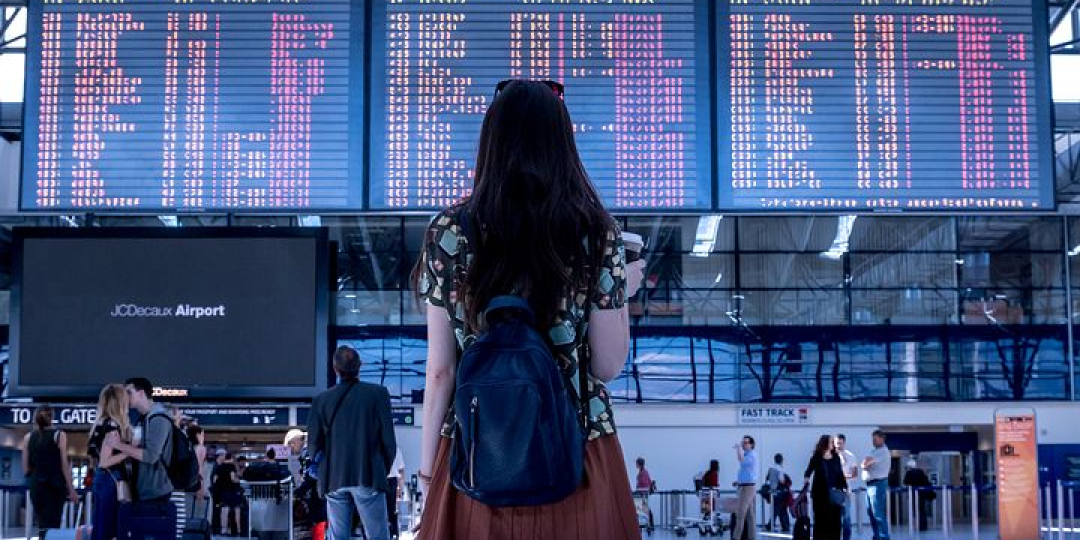Airlines beset by labour shortages and high demand are struggling to keep up with travel demand, which has led to flight cancellations and paying passengers being bumped off flights.
But none of that could excuse the behaviour of an airline that allegedly laid the blame on the travel agent for a paying passenger’s offloading, and which then allegedly left it to the passenger and the travel agent to find a way out of the mess.
Shelley Vey, Senior Consultant at Giltedge Travel, recently experienced the bumping of a family of four on Ethiopian Airlines. “My passengers were confirmed on tickets issued by the airline; the booking was made by the airline in their system. I could not check my passengers in online and when they got to check-in at Athens airport they were told that the travel agent had cancelled the booking and they would not be boarded.” Shelley had received confirmation of the e-tickets from the airline and that seat numbers had been allocated to her passengers. “I spent hours on the phone and sending emails trying to get hold of anyone at Ethiopian Airlines, and to date I have still not had a response to any of my emails or phone calls. My clients spent the night sleeping on the airport floor until they were told they had to leave and find a hotel. I went to the airport in Cape Town the following day and after three hours at the counter with my laptop, the airline re-routed three family members via Frankfurt on Lufthansa. Ethiopian told me they could only accommodate three passengers and that if the husband went to the airport he would be bumped again because the seat capacity on that flight was 225 passengers, and 246 passengers were booked and ticketed.”
Vey added: “My clients had to pay in R8 000 to get the tickets reissued by the airline. The original tickets were bookings that had been cancelled due to COVID lockdowns in 2019 and then had been reissued on a credit voucher. The re-routing of the husband required a new domestic flight from Johannesburg which cost him another R4 000. So my client paid in a total of R12 000 to have a legitimate ticket credit reissued, due to the airline’s overbooking, and he also had to pay for an additional two nights’ accommodation in Athens until the airline could get him on a flight!
“I did not charge for my services and have not made a cent out of the booking but, even worse than that, the airline lied to my clients and told them that I had cancelled the booking, rather than tell the client the airline had overbooked the flight.”
According to a consumer report from the US Bureau of Transportation Statistics published in June this year, the rate of passengers involuntarily denied boarding in the first quarter of 2022 was 0,44 per 10 000 passengers, which is more than five times greater than the 2021 figure of 0,08. It is also considerably greater than the pre-pandemic rate of 0,32 per 10 000 passengers in the same period during pre-pandemic 2019.
As travel agents know, bumping, also known as ‘denied boarding’, happens when there are more passengers scheduled to fly on an aircraft than available seats. The practice of bumping is not illegal and airlines oversell their scheduled flights to a certain extent in order to compensate for ‘no-shows’, the whole process informed by the airline’s yield management system. Most of the time, the carrier correctly predicts the ‘no shows’ and everything goes smoothly. But sometimes, passengers are bumped as a result of overselling. And it is at this point that any airline flying into the EU or departing from the EU is obliged to help the passenger secure an alternative at no expense to the passenger. In fact, it is obliged to aid the passenger at its own expense.
Under EU law (and this applies for any airline flying into the EU or departing from the EU) the Flight Compensation Regulation (EC No 261/2004) on compensation and assistance to passengers in the event of denied boarding, flight cancellations, or long delays of flights, requires compensation of €250 to €600 depending on the flight distance, for passengers denied boarding due to overbooking. Airlines must provide refreshments and accommodation where appropriate. It is well known that the Court of Justice of the EU interprets these regulations strictly, giving no leeway for airlines to evade their obligations for their breach of contract.
Despite Travel News’s 10 emails to Ethiopian Airlines’ Communications Department’s email address, the South African sales reps and the Head Office, followed by four attempts to phone the local office (all phone calls unanswered), Ethiopian Airlines has remained unresponsive.














